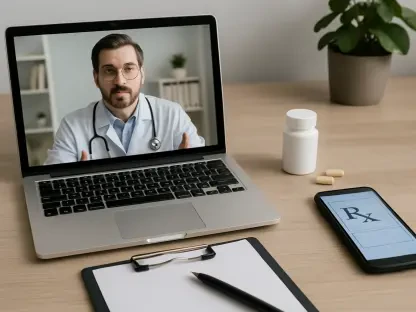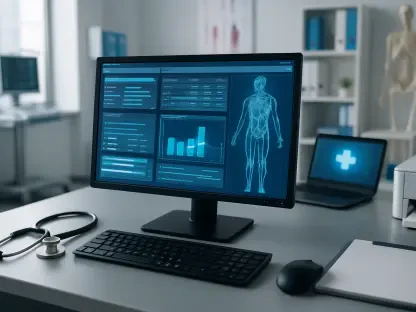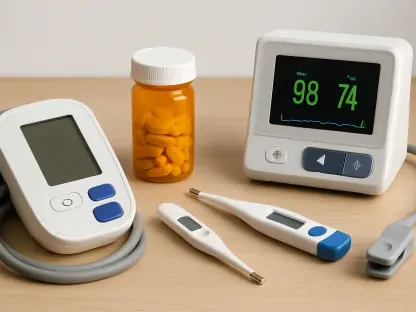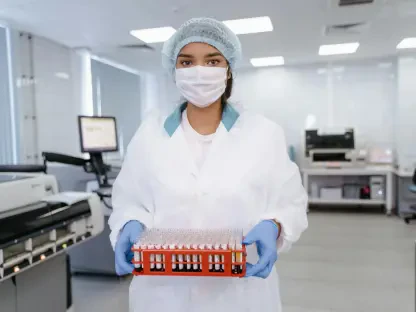The ongoing conflicts in the Middle East have drastically impacted the healthcare system, leading to severe deficiencies in maternal and child health services. Pregnant women and children under the age of five are particularly vulnerable due to the lack of access to timely and adequate medical care. This dire situation has called for innovative solutions to bridge the gap in healthcare services. One promising approach involves the deployment of mobile clinics, a strategy that has proven effective in navigating the constraints imposed by conflict and insecurity. These mobile units offer a flexible and immediate solution, bringing essential healthcare services directly to underserved populations.
Addressing Healthcare Accessibility
Prolonged conflicts and economic instability have severely disrupted healthcare accessibility in the Middle East. The destruction of healthcare facilities and the displacement of medical professionals have left vulnerable populations, particularly pregnant women and young children, at an increased risk of preventable diseases and complications. This lack of access to essential healthcare services has become a critical issue that requires immediate and innovative interventions.
Mobile clinics offer a cost-effective solution, capable of overcoming geographic and security constraints that traditional healthcare facilities cannot surmount. These mobile units are designed to navigate through difficult terrains and volatile areas, ensuring that essential healthcare services reach the most vulnerable populations. By bringing healthcare directly to those in need, mobile clinics significantly reduce the barriers that prevent underserved communities from accessing timely medical care.
The deployment of mobile clinics in conflict zones not only addresses immediate healthcare needs but also establishes a foundation for long-term health improvements. By providing continuous and reliable access to medical services, these mobile units help build trust within the communities they serve. This trust is crucial for encouraging individuals to seek medical care, adhere to treatment plans, and participate in preventive health measures, ultimately leading to better health outcomes for mothers and children.
Essential Services and Operations
Mobile clinics are equipped to provide comprehensive antenatal and postnatal care services, which are vital for ensuring the health and well-being of both mothers and their babies. These services include regular health check-ups, monitoring the progress of pregnancy, and addressing any complications that may arise. By offering these services close to home, mobile clinics make it easier for expectant mothers to receive the care they need, reducing the risks associated with pregnancy and childbirth.
Child immunizations are another critical component of the preventive care provided by mobile clinics. Vaccination programs help protect children from life-threatening diseases, such as measles, polio, and tuberculosis. By delivering these vaccines directly to the communities, mobile clinics ensure that children receive their immunizations on time, preventing the spread of infectious diseases and contributing to overall public health.
Nutritional screening is also a key aspect of the services provided by mobile clinics. By identifying and addressing undernourishment in children and pregnant women, mobile clinics help prevent malnutrition-related health issues, which can have long-lasting effects on growth and development. Health education sessions are conducted to raise awareness about safe pregnancy practices, newborn care, breastfeeding, and hygiene. These sessions empower women with knowledge, enabling them to make informed decisions about their health and the well-being of their children.
Community Engagement and Education
Community engagement is integral to the operations of mobile clinics, as it helps build trust and rapport between healthcare workers and the communities they serve. Educational sessions are conducted to empower women with knowledge about breastfeeding, hygiene practices, and other essential health topics. These sessions not only provide valuable information but also create a platform for women to discuss their concerns and share their experiences.
Healthcare workers foster trust through their continuous presence and engagement within the communities. By regularly visiting the same areas, healthcare workers become familiar faces, which helps establish a sense of reliability and accessibility. This consistent interaction encourages individuals to seek medical advice and treatment without hesitation, ultimately leading to better health outcomes for the entire community.
The role of community leaders is also vital in facilitating the success of mobile clinics. By collaborating with local health authorities and community leaders, mobile clinics can ensure that their services are culturally sensitive and tailored to the specific needs of the population. This coordination helps address any cultural or social barriers that may hinder the acceptance of healthcare services, promoting a more inclusive approach to health delivery.
Cultural Sensitivity and Sustainability
Coordinating services with local health authorities and community leaders is essential to ensure cultural sensitivity and sustainability in the delivery of healthcare services. This collaboration helps tailor healthcare services to meet the diverse needs of the regional population, respecting local customs and practices. By involving community leaders in the planning and implementation of healthcare initiatives, mobile clinics can gain valuable insights that enhance the acceptance and effectiveness of their services.
Tailored healthcare services cater to the unique needs of the population, such as providing language-appropriate care and addressing specific health concerns prevalent in the region. This personalized approach helps bridge the gap between healthcare providers and the communities they serve, making healthcare services more accessible and relevant to the population. By fostering a sense of ownership and responsibility within the community, mobile clinics can create a supportive environment that encourages individuals to seek medical care and adhere to treatment plans.
The sustainability of the mobile clinic initiative is maintained through community involvement and local partnerships. By empowering local communities to take an active role in their healthcare, mobile clinics can create a lasting impact that extends beyond the immediate provision of medical services. Community sensitization campaigns and peer-led support groups are established to promote healthcare services’ uptake and utilization. These efforts help build a resilient healthcare system that can adapt to the changing needs of the population and ensure the continued delivery of essential services.
Monitoring and Evaluation
Robust monitoring and evaluation systems are essential for tracking service delivery and healthcare outcomes provided by mobile clinics. Implementing baseline and endline surveys allows for the assessment of the impact and effectiveness of the clinics in target areas. These surveys provide valuable data on key indicators such as maternal and child health, vaccination rates, and the prevalence of malnutrition.
Beneficiary feedback mechanisms ensure that the services provided by mobile clinics remain responsive to the needs of the community. By regularly collecting and analyzing feedback from patients, healthcare providers can identify areas for improvement and make necessary adjustments to their services. This continuous feedback loop helps maintain the quality and relevance of healthcare services, ensuring that they meet the evolving needs of the population.
Monitoring and evaluation also play a crucial role in ensuring accountability and transparency in the delivery of healthcare services. By tracking progress and measuring outcomes, healthcare providers can demonstrate the impact of their work, which is essential for securing ongoing funding and support. Regular data collection aids in refining project strategies, identifying best practices, and scaling up successful interventions to reach more communities in need.
Strengthening Local Health Systems
Mobile clinics play a significant role in strengthening local health systems by establishing strong referral pathways to permanent healthcare facilities. This ensures that patients requiring higher levels of care experience seamless transitions, receiving the specialized treatment they need. Collaborations with local health authorities and existing healthcare facilities are essential for building a dependable referral network that can address a wide range of health issues.
Transport solutions are integral to the success of mobile clinics, particularly for high-risk pregnancies or emergency cases. By providing reliable transportation options, mobile clinics can facilitate the transfer of patients to advanced medical facilities, ensuring that they receive timely and appropriate care. This coordination between mobile and permanent healthcare providers helps build a cohesive healthcare delivery system that can effectively address the needs of the population.
Strengthening local health systems also involves capacity-building efforts aimed at enhancing the skills and knowledge of healthcare professionals within the community. Training programs are conducted to equip local healthcare workers with the expertise needed to deliver high-quality care and manage health services effectively. By investing in the development of local health systems, mobile clinics contribute to the long-term sustainability and resilience of healthcare delivery in conflict-affected regions.
Resource Allocation and Management
Effective resource allocation and management are critical to the success of mobile clinic initiatives. A detailed resource plan includes human resources, medical equipment, and operational costs, ensuring that all aspects of service delivery are adequately covered. Qualified healthcare professionals are recruited to provide high-quality care, and ongoing training programs are conducted to enhance their skills and knowledge.
The procurement and preparation of mobile clinic units are crucial initial steps in the implementation of the project. These units must be equipped with essential medical supplies, vaccines, diagnostic tools, and other necessary equipment to ensure that they can deliver comprehensive healthcare services. Efficient resource management ensures that mobile clinics operate smoothly and can respond to the diverse needs of the communities they serve.
Funding and support from donors and stakeholders play a vital role in sustaining the operations of mobile clinics. Securing financial resources is essential for covering operational costs, maintaining equipment, and expanding services to reach more communities. Transparent financial management and regular reporting help build trust with donors and ensure that resources are used effectively to achieve the desired health outcomes.
Expected Health Outcomes
The initiative aims to improve healthcare access for at least 20,000 individuals, including expectant mothers and children under the age of five. By providing essential healthcare services directly to underserved populations, mobile clinics can significantly reduce the barriers to accessing timely and adequate medical care. This increased access is expected to lead to better health outcomes and reduce preventable morbidity and mortality rates.
Increased rates of antenatal visits and institutional deliveries are anticipated outcomes of the mobile clinic initiative. By offering comprehensive antenatal and postnatal care services, mobile clinics can ensure that expectant mothers receive the necessary support and medical attention throughout their pregnancy. This helps reduce the risks associated with childbirth and improves the overall health and well-being of both mothers and babies.
Enhanced immunization coverage is another key outcome expected from the mobile clinic initiative. By delivering vaccines directly to the communities, mobile clinics can ensure that children receive their immunizations on time, protecting them from life-threatening diseases. This contributes to overall public health and helps prevent the spread of infectious diseases within the community.
Strengthened community knowledge and practices related to maternal and child health are also anticipated outcomes of the initiative. Through targeted health education campaigns and continuous community engagement, mobile clinics can empower individuals with the knowledge and skills needed to make informed decisions about their health. This increased awareness and understanding can lead to long-term health improvements and promote a culture of health and well-being within the community.
Integrated Healthcare Delivery
Integrating mobile clinics within existing health systems is vital for the sustainability and effectiveness of healthcare delivery in conflict-affected regions. Collaboration with local health authorities and permanent healthcare facilities ensures a seamless service delivery model, allowing for a more coordinated and comprehensive approach to healthcare. This integration helps bridge the gap between mobile and permanent healthcare providers, creating a cohesive system that can respond effectively to the needs of the population.
Mobile clinics complement the services provided by permanent healthcare facilities, offering a flexible and immediate solution to address gaps in healthcare access. By working together, mobile and permanent healthcare providers can ensure that patients receive continuous and comprehensive care, regardless of their location or the challenges posed by conflict and insecurity. This collaborative approach enhances the overall resilience and capacity of the healthcare system, enabling it to better withstand the pressures of ongoing conflicts and economic instability.
The integration of mobile clinics within existing health systems also involves strengthening referral pathways and building a dependable network of healthcare providers. This ensures that patients requiring higher levels of care can be referred to appropriate facilities and receive the specialized treatment they need. By establishing strong referral mechanisms and fostering partnerships with local health authorities, mobile clinics can contribute to a more robust and efficient healthcare delivery system.
Engaging the Community for Better Health Outcomes
Active participation from community members is essential for enhancing the understanding and acceptance of healthcare services provided by mobile clinics. By involving community members in the planning and implementation of healthcare initiatives, mobile clinics can ensure that their services are relevant and responsive to the specific needs of the population. This community-driven approach helps build trust and encourages individuals to seek medical care, leading to better health outcomes for the entire community.
Empowered community members play a crucial role in promoting health practices and encouraging the use of mobile clinic services. By providing education and raising awareness about essential health topics, community members can become advocates for health within their neighborhoods. This peer-to-peer approach helps disseminate valuable information and fosters a culture of health and well-being.
Peer-led support groups also play a significant role in amplifying the outreach efforts of mobile clinics. These support groups provide a platform for individuals to share their experiences, discuss their concerns, and offer mutual support. By creating a sense of community and solidarity, peer-led support groups help reduce the stigma associated with seeking medical care and encourage individuals to take proactive steps toward improving their health.
The Role of Monitoring and Feedback
Continuous monitoring and evaluation are essential for ensuring accountability and transparency in the delivery of healthcare services provided by mobile clinics. Regular data collection and analysis help track progress, measure outcomes, and identify areas for improvement. This information is crucial for refining project strategies, scaling up successful interventions, and making necessary adjustments to meet the evolving needs of the population.
Community feedback mechanisms play a vital role in ensuring that services remain responsive and relevant. By actively seeking and incorporating feedback from beneficiaries, healthcare providers can gain valuable insights into the effectiveness of their services and identify areas where improvements are needed. This feedback loop helps maintain the quality and relevance of healthcare services, ensuring that they meet the needs and expectations of the community.
Monitoring and feedback mechanisms also contribute to the overall success and sustainability of the mobile clinic initiative. By demonstrating the impact of their work through data and feedback, healthcare providers can build trust with donors and stakeholders, securing ongoing support and funding. This ensures that the mobile clinics can continue to deliver essential healthcare services and contribute to long-term health improvements in conflict-affected regions.
Conclusion
The ongoing conflicts in the Middle East have severely compromised the healthcare system, leading to significant deficiencies in maternal and child health services. Pregnant women and children under the age of five are especially vulnerable due to the lack of access to timely and appropriate medical care. This dire situation has necessitated the development of innovative solutions to bridge the gap in healthcare services.
One promising approach involves the deployment of mobile clinics. These clinics have proven effective in navigating the constraints imposed by conflict and insecurity. Mobile units offer a flexible and immediate solution by bringing essential healthcare services directly to underserved and hard-to-reach populations. They are designed to be adaptable, providing care in various settings where traditional healthcare facilities are either inadequate or entirely absent.
The mobile clinics are staffed with skilled medical professionals who can offer a range of services, including prenatal care, vaccinations, and treatment for common illnesses. They also play a vital role in educating communities about health practices, promoting better health outcomes in the long term. Through mobile clinics, maternal and child health can be significantly improved even in areas plagued by instability. This innovative approach ensures that essential medical care reaches those most in need, mitigating the impact of the ongoing conflicts on vulnerable populations.









